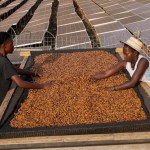(JUBA) – A maize and sorghum cooperative that began with just 20 members in Central Equatoria State has grown to over 150 within a year, becoming a source of income and stability for many South Sudanese families. The rapid growth highlights the increasing role of cooperatives in addressing both poverty and insecurity in South Sudan.
Louis Bagare, project manager for cooperatives at the Food and Agriculture Organization (FAO) in South Sudan, believes cooperatives are a key pathway not only for economic recovery but also for national development. He said cooperatives provide people with the ability to meet basic needs collectively in places where working alone is often not enough.
Bagare spoke ahead of the International Day of Cooperatives, observed annually on 5 July, where the global community reflects on how cooperative models can improve lives in fragile environments. He said cooperatives are not just about economic support, but about building a sense of unity and peace in a country that has been torn apart by years of war.
Since independence in 2011, South Sudan has struggled with conflict, intercommunal violence, and food insecurity. Although a peace agreement was signed in 2018, the situation remains fragile. Looting and instability, often driven by desperate youth, continue in many parts of the country.
Deng William Achiek, Director for Rural Producers at the Ministry of Agriculture and Food Security, said cooperatives have changed mindsets and improved security in areas where they are active. He said communities that form cooperatives often see a drop in violence because members become focused on work, income, and shared progress.
Oneil Yosia Daima, Director General for Cooperative Development, said the cooperative model is both democratic and inclusive. It brings people together in a voluntary way, allowing them to share labour, risks, and rewards. He explained that when individuals cannot survive on their own, a cooperative gives them the chance to succeed as a group.
Bagare added that when youth are actively involved in cooperatives, they are less likely to engage in armed violence or robbery. Many young people, particularly in rural areas, are drawn to looting because they lack access to jobs or capital. Cooperatives offer them a productive alternative that creates self-worth and community respect.
He also explained that organisations like FAO, as well as financial institutions, are more likely to support cooperatives than individuals. This makes it easier for members to access resources, training, and credit. However, he noted that the ultimate goal is for these cooperatives to become independent and self-sufficient.
Cooperatives are not new in South Sudan. Bagare and Daima both pointed out that South Sudan has a long history of cooperative work, especially before the civil war began in 2011. From farming and fishing to soap making and tailoring, cooperatives have been part of daily life in many communities.
Daima recalled what he called the “golden era” of cooperatives and said his ministry is working hard to revive that spirit. “I want our cooperatives to be as busy as bees,” he said, referring to the energy and cooperation required for success.
Bagare believes cooperatives can be expanded beyond agriculture into other sectors such as manufacturing, trade and services. He hopes that by building a culture of cooperation, South Sudan can move toward peace and prosperity.
“If we are able to work together, we can become better people tomorrow,” he said. “But if we keep fighting each other, we will only destroy ourselves.”
Key points about the cooperative movement in South Sudan
| Key Element | Details |
|---|---|
| Start Example | Maize & sorghum cooperative (20 to 150 members in one year) |
| Main Supporter | Food and Agriculture Organization (FAO) |
| Government Bodies Involved | Ministry of Agriculture and Food Security |
| Primary Benefits | Income generation, peacebuilding, democratic participation |
| High Risk Groups Engaged | Youth and conflict affected communities |
| Other Products | Soap, textiles, bread, agriculture |
| Future Goal | Expand cooperatives across all economic sectors |
| Long-Term Vision | Self-sufficiency, economic growth, and national unity |


















































